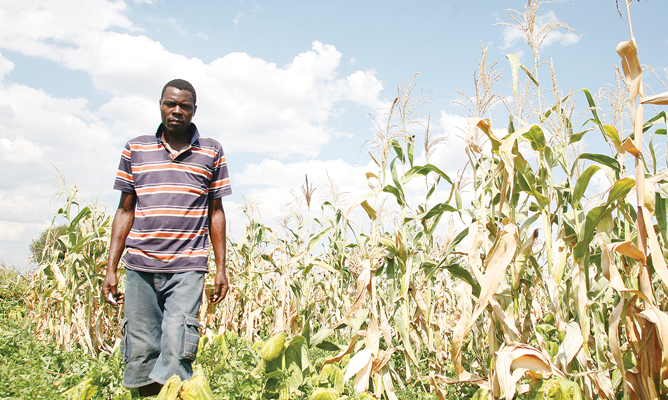
EDITORIAL COMMENT
Zimbabwe is bearing the brunt of a poor 2018/19 agriculture season where the majority of farmers harvested very little due to what has been described as the worst drought in a century.
The current agricultural season, which traditionally ends in March, is not promising much either with erratic rainfall being received in most parts of the country so far.
Compounding these adverse weather conditions is a debilitating economic crisis that has seen the majority of workers being thrown out of employment, leaving many families struggling for survival.
According to humanitarian agencies, more than seven million Zimbabweans or half the population, are facing starvation unless donors intervene.
The country is already facing a serious shortage of maize because there is no adequate foreign currency to import grain from as far as South America.
Prices of the available mealie-meal continue to skyrocket beyond the reach of many.
To cushion the poor, in December last year, the government introduced a mealie-meal subsidy that was meant to help the vulnerable.
- Chamisa under fire over US$120K donation
- Mavhunga puts DeMbare into Chibuku quarterfinals
- Pension funds bet on Cabora Bassa oilfields
- Councils defy govt fire tender directive
Keep Reading
Predictably, the subsidy that saw 10kg of mealie-meal selling for $50 opened the floodgates for arbitrage.
Some millers saw an opportunity to channel their mealie-meal to the black market where they fetched more money. On the black market, mealie-meal is sold in foreign currency.
Officials from the state-owned Grain Marketing Board, according to the government, have joined the bandwagon of those taking advantage of the arbitrage opportunities.
As a result, very little of the subsidised product is sold through the official channels.
To stop the abuse, government last week increased the price to $70 for 10kg.
Cabinet said it was also in the process of introducing a new scheme that would allow poor and vulnerable communities to buy mealie-meal at the subsidised price.
Critics are naturally alarmed by the proposed scheme because of the government’s poor track record in distributing food aid to the vulnerable, which has seen ruling Zanu PF supporters getting the lion’s share from such programmes.
Besides the likely political interference, subsidies in Zimbabwe have always achieved the opposite of what those that craft them would have intended.
Subsidies lead to acute shortages as the few that are connected to the government capitalise on the arbitrage opportunities to fatten their pockets.
The government has to be careful in its fire fighting lest it worsens the food crisis already engulfing the country.
A rethink of the proposed coupon system or the entire subsidy is required as a matter of urgency as the government crafts coherent policies to address the food shortages.











